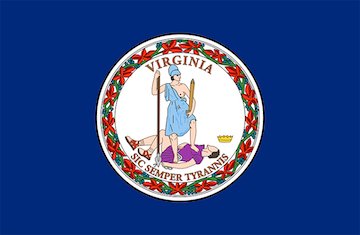50 State Undue Influence Project: Virginia Undue Influence Expert Definitions
In an effort to provide a better understanding for what undue influence expert psychologists look for when forming opinions about whether undue influence occurred in the execution of a will, trust, beneficiary designation, or other contractual document, I am highlighting the statutes, case law, and jury instructions specific to all 50 states. Each will be in its own blog post. Forty-sixth up, Virginia.
Pace v. Richmond, 231 Va. 216, 343 S.E.2d 59 (1986):
Undue influence exists only where the free will of the influenced party has been effectively destroyed. Resistible persuasion and importunity are insufficient to create undue influence.
The undue influence which will vitiate a will must be of such a character as to control the mind and direction of the testator. It must be sufficient to destroy free agency on the part of the testator; it must amount to coercion – practically duress. It must be shown to the satisfaction of the court that the party had no free will.
The burden of proving undue influence rests on those alleging it, and cannot be satisfied with evidence of mere suggestion and innuendo.
Undue influence is a species of fraud, and so must be proved by clear and cogent and convincing testimony.
Influence is not undue which tests upon natural affection and desire to give property to those who are most considerate, attentive and useful to us.
Parish v. Parish, 281 Va. 1919, S.E.2d 99, 102 (2011):
A presumption of undue influence arises when three elements are established:
The testator was old when his will was established;
He named a beneficiary who stood in a relationship of confidence or dependence; and
He previously had expressed an intention to make a contrary disposition of his property (quoting Martin v. Phillips, 235 Va. 523, 527, 369 S.ER.2d 397, 399 (1988)).
Parson v. Miller, 822 S.E.2d 169 (2018):
once the presumption of undue influence is established, the burden of production then shifts to the proponent of the will. if the proponent of the will puts forth no evidence at this point, the presumption of undue influence is sufficient to form the basis of a verdict in the contestant’s favor. In order to rebut the presumption, the proponent of the will is required To put forth countervailing evidence tending to prove that the decedent's well that's not overborne. We have explained that not all influences undo in the legal sense. To be classified as undo, influence must place the testator in the attitude of saying, “It is not my will but I must do it.” To be well produces evidence tending to prove that the decedent's well it's not overborne, the presumption disappears like a bursting bubble. the contestant of the will then retains the burden of proving undue influence by clear and convincing evidence.
Gibbs v. Gibbs, 239 Va. 197, 201, 387 S.E.2d 499, 501 (1990):
Undue influence must be established by clear and convincing evidence.
